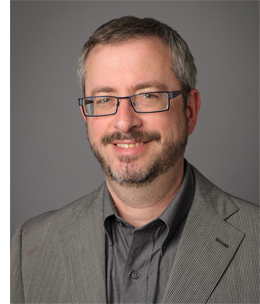Our leadership, in particular our board chair Stephen Gaerber and our Yom Ha’atzmaut Committee chair Pam Wolfman, along with our staff, have been an inspiration to me. I reached out to many people this week, and it was call that I made to my predecessor and friend Mark Gurvis that helped reinforce for me the importance of the journey we are on together. Before Mark moved to New York to be the executive vice-president of Jewish Federations of North America, he spent more than a decade as CEO of our Federation. He started this series of Shabbat messages that I am privileged to continue each week, so it seemed only fitting that you hear in his words why an open tent is so crucial to the future of our People.
 While in Israel this week for the Jewish Agency Board of Governors meeting I have been following the news about the controversy over Achinoam Nini's scheduled performance at Vancouver's annual Yom Ha’atzmaut celebration. Ezra asked that I share some thoughts from my vantage point at the umbrella organization of the Jewish Federation system.
While in Israel this week for the Jewish Agency Board of Governors meeting I have been following the news about the controversy over Achinoam Nini's scheduled performance at Vancouver's annual Yom Ha’atzmaut celebration. Ezra asked that I share some thoughts from my vantage point at the umbrella organization of the Jewish Federation system.
Some things are immediately clear. Noa is not an "enemy of the state", a proponent of the BDS movement, or a risk to Israel's national security. She is one of Israel’s most precious cultural ambassadors and Vancouver is fortunate to be able to feature her at an event that over the years has showcased many of Israel's best artists. She's also a progressive who I'm guessing didn't vote for the Likud Party in Israel's last election, and takes issue, sometimes publicly, with some Israeli policies. But when Israel's Foreign Ministry co-sponsors the event and Israel's Consul General puts it on his schedule, it tells us that a political controversy is being created for other reasons.
But I don't really want to talk about the concert, since that isn't really the issue people should be concerned about. What is of real concern is that we are losing our ability to disagree without disassociating ourselves from one another. The Jewish people and the Jewish State have real enemies. But not everyone who disagrees with Israeli policy is an enemy of the state. In fact, the vibrancy of Israel's democracy, or any democracy for that matter, depends on the vibrancy and robustness of political debate.
In today's political environment, which is so highly polarized, it has become all too common to brand political opponents as enemies - disloyal, treasonous. It isn't a unique phenomenon to Israel - we see it today in every western democracy. It is a phenomenon that is ultimately a far greater threat to communal or national cohesiveness than the different ideas themselves.
In Jerusalem this week the board of the Jewish Agency celebrated the recent Israeli government approval of a new permanent egalitarian prayer space at the Kotel - the Western Wall of the Temple Mount. In speaking about the momentous decision, which culminated three years of torturous negotiations, Natan Sharansky talked about what ultimately made the resolution possible. You can't imagine two parties to a conflict who had less in common, and less desire to compromise, than the leadership of the Women of the Wall and the Rav HaKotel (the ultra-Orthodox rabbinic authority responsible for managing the space in front of the Kotel). For 27 years this conflict has landed in the news, with horrible images of women in prayer shawls being showered with garbage, or hauled away by police.
Since the Six Day War the Kotel has become one of the most important Jewish symbols. If either party had insisted on their maximalist position and succeeded in forcing that position, it would have resulted in hundreds of thousands of Jews feeling they no longer had a place in a space to which every Jew should feel connected. They would be cut off from being part of our collective Jewish journey into the future. In the end compromise became possible because the leaders involved recognized it was more important that every Jew be part of that collective journey, part of Klal Yisrael, than it was that they "win" on their issue. They could not, and would not take responsibility for cutting large numbers of Jews off from being part of the Jewish community.
One of the most serious responsibilities of the Jewish Federation in every community is to be the convener and facilitator of the broadest possible coalition of community members who love and support the State of Israel. It is inherent in that role that there will be people inside that big tent who disagree with each other about various issues related to the State - the peace process, where the boundaries of the State should be, how the State should relate to minorities, how Israel should deal with external threats, or economic issues, or the place of religious authority in society, or environmental issues, or whatever. It all goes with Theodore Herzl's vision of Israel as a normal country among the family of nations. Our relationship with the State of Israel ultimately transcends all of these individual issues - it is bound up in what it means to be Am Kodesh - a holy people - tied to Eretz HaKodesh - the holy land God has given us. Whether you believe in God or not, or believe the land was given by God to us or not, Israel is an inseparable part of our collective DNA.
Yom Ha’atzmaut is not just Israel's Independence Day - it is the day when Jews all over the world come together to celebrate Israel's central place in our collective Jewish gestalt. There should be a place at that celebration, whether on stage or off, for the broadest possible cross-section of people who love Israel. The only way we have a future together as a people is if we make our tent larger, and not smaller. It doesn't mean we have to agree with one another. It just has to mean we recognize and accept each other's place in our collective journey.
I hope you have bought your tickets.
Ezra S. Shanken
CEO,
Jewish Federation of Greater Vancouver

